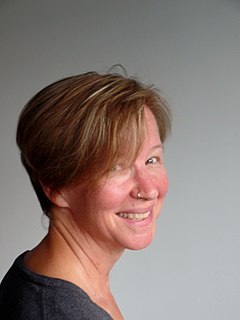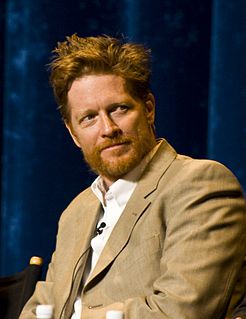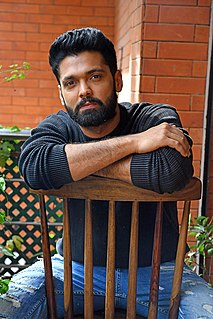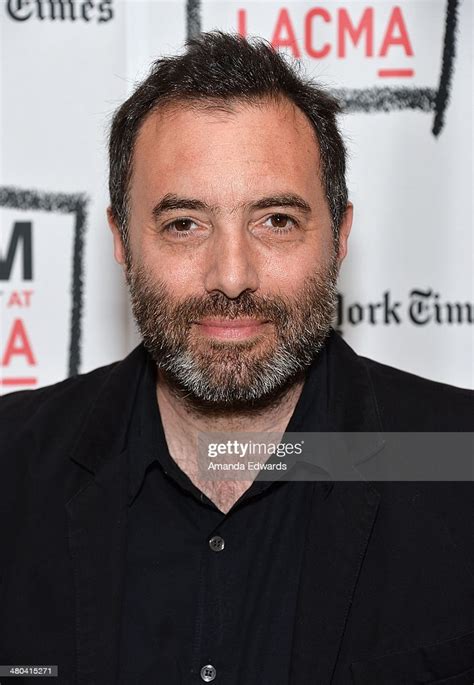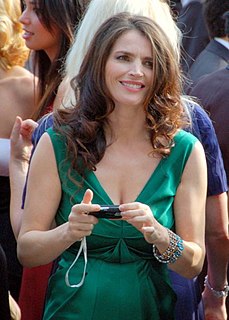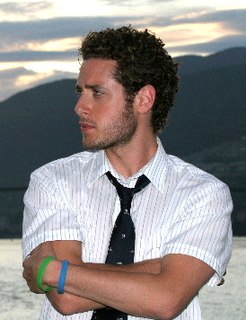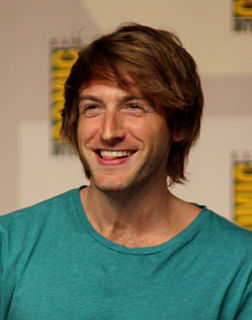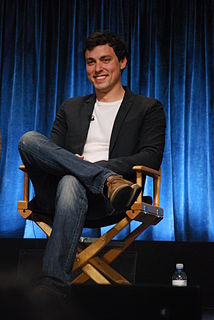A Quote by Therese Fowler
My creative workday starts with strong breakfast tea and a few minutes of journaling, both of which help me get my head in the story. So much of story-building for me involves immersing myself in the character and situation I'll be working on, just the way an actor does when playing a role.
Related Quotes
But I've always felt that the less you know about an actor's personal life, the more you can get involved in the story in which he's playing a character. And I don't like to see movies where you know about everything that happens behind the scenes. I can't engage in the story if I know what's going on in the actor's head.
He thought about the story his daughter was living and the role she was playing inside that story. He realized he hadn't provided a better role for his daughter. He hadn't mapped out a story for his family. And so his daughter had chosen another story, a story in which she was wanted, even if she was only being used. In the absence of a family story, she'd chosen a story in which there was risk and adventure, rebellion and independence.
I've found great virtue in two-thirds of the way into the message; right before I'm really want to nail home a point, pausing to tell a joke or to tell a light-hearted story, because I know my audience has been working with me now for 20 or 25 minutes. And if I can get them to laugh, get oxygen into their system, it wakes up those who might be sleeping, so there's something about using a story to draw people back in right before you drive home your final point. In that case I think it's real legitimate just to use a story for story's sake.
Whatever character you play, whatever film it is, whatever story it is, for me, in my training it's always something that gives you a layered character, it's understanding the secret of that character, and so whatever comes up as "Oh, I thought that person was that," you are always carrying that within you. So actually what you're playing all the way through is both and it's just what comes out in the scene or the circumstance.
In high school, my first thing ever was I played Tony in West Side Story when I was about 17. I was a really shy kid and I just like forced myself to learn how to sing this one month because I loved West Side Story so much and I somehow managed to get the role. I had an afro and glasses, and the guy who cast me goes, "All right, the first thing to go is the afro and the next thing, I'm going to buy you contacts and we're going to get you..." So he kind of molded me into what it had to - that's still probably the hardest role I've every played in anything, the most taxing role.
I don't see myself as one type of actor. When you get one role, you start to get cast in that role for awhile because that's what people have seen you do, and have hopefully seen you do it successfully. And so, it becomes an easier thing to see you as, for casting directors and directors, and they start to think of you as that particular person or type of character. But, for me, I'm just an actor, first and foremost. The actors I respect are the real character actors, who are the real chameleon actors that completely change from role to role.
I enjoy both acting and screenwriting, in completely different ways. You have more creative freedom with writing because you can create everything that happens. But, as an actor you also have creative freedom because you don't so much focus on what has to move the story along, and only on how your character is reacting to situations.
When I'm looking for a strong female character, or a strong character at all, I'm looking for a character that has a purpose in that story, that has an interior life of some sort. They don't have to be physically strong; they don't have to be morally strong or ethically strong, because men and women come in a huge variety of all of those things. Emotionally, ethically - I'm less concerned with that. I just don't want them to be props. That's the only thing that offends me.
There are no happy endings... There are no endings, happy or otherwise. We all have our own stories which are just part of the one Story that binds both this world and Faerie. Sometimes we step into each others stories - perhaps just for a few minutes, perhaps for years - and then we step out of them again. But all the while, the Story just goes on.
